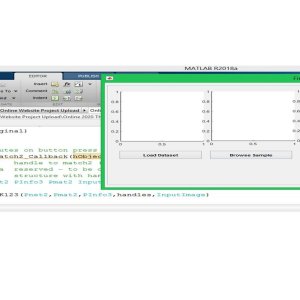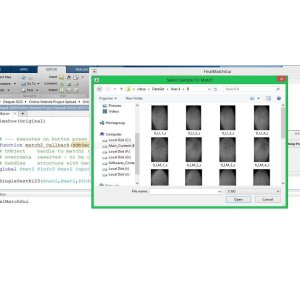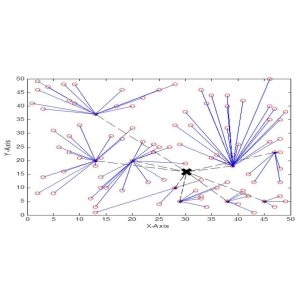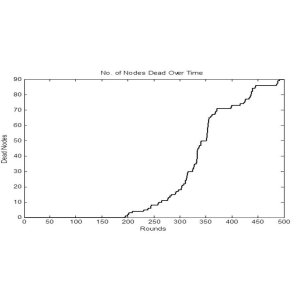Efficient Trust-Aware Routing Framework for WSNs
Problem Definition
PROBLEM DESCRIPTION:
Wireless Sensor Networks (WSNs) are increasingly being used in various applications such as environmental monitoring, healthcare, and industrial automation. However, the open and dynamic nature of WSNs makes them vulnerable to security threats, especially in the routing protocols used for data transmission.
One of the major security threats in WSN routing protocols is the attacker misdirecting the multihop routing, leading to harmful and highly destructive attacks such as wormhole attacks, sinkhole attacks, and Sybil attacks. These attacks can compromise the integrity, confidentiality, and availability of data transmitted through the network.
Traditional cryptographic techniques have been used to address the security issues in WSN routing protocols, but they are not always efficient in preventing attacks from identity duplicity and malicious nodes.
This calls for the need for a robust trust-aware routing framework (TARF) that can provide trustworthy and energy-efficient routes in dynamic WSNs.
Therefore, the development and implementation of TARF are essential to provide protection against security threats in WSNs and ensure the secure and reliable transmission of data in large-scale networks, including mobile and RF-shielding network conditions. The research on TARF aims to enhance the security of WSNs by preventing attacks from malicious nodes and ensuring the integrity of data transmission in dynamic WSN environments.
Proposed Work
The proposed work focuses on the design and implementation of TARF (Trust-Aware Routing Framework) for Wireless Sensor Networks (WSNs) in order to enhance the security of dynamic WSNs against potential attackers. TARF aims to provide a trustworthy and energy-efficient routing framework to protect WSNs from various attacks such as wormhole, sinkhole, and Sybil attacks. The traditional cryptographic techniques used in trust-aware routing protocols have proven to be inefficient in preventing these attacks. Through both simulation and empirical experiments, it was observed that TARF outperforms traditional algorithms in large-scale WSNs, including those in mobile and RF-shielding network conditions. This project falls under the category of Wireless Research Based Projects and subcategories such as .
NET Based Projects, Routing Protocols Based Projects, Wireless security, and WSN Based Projects. The implementation of TARF will contribute significantly to the advancement of secure routing protocols in WSNs.
Application Area for Industry
The proposed project of designing and implementing Trust-Aware Routing Framework (TARF) for Wireless Sensor Networks (WSNs) is crucial for various industrial sectors such as environmental monitoring, healthcare, and industrial automation. These sectors rely heavily on WSNs for data transmission and monitoring purposes, making them susceptible to security threats such as wormhole attacks, sinkhole attacks, and Sybil attacks. By implementing TARF, industries can ensure the secure and reliable transmission of data in large-scale networks, even in dynamic and RF-shielding network conditions.
Specific challenges faced by industries in these sectors include the integrity, confidentiality, and availability of data transmitted through WSNs, which can be compromised by malicious nodes and identity duplicity. Traditional cryptographic techniques have proven to be insufficient in addressing these security threats, highlighting the need for a robust trust-aware routing framework like TARF.
By enhancing the security of WSNs and preventing attacks from malicious nodes, TARF can significantly improve the overall efficiency and reliability of data transmission in industrial sectors, ultimately leading to enhanced productivity and operational safety.
Application Area for Academics
The proposed project focusing on the development and implementation of a Trust-Aware Routing Framework (TARF) for Wireless Sensor Networks (WSNs) presents an excellent avenue for research by MTech and PHD students. This project addresses the critical issue of security threats in WSN routing protocols, such as wormhole, sinkhole, and Sybil attacks, which can compromise data integrity, confidentiality, and availability in dynamic network environments. By exploring TARF through simulations and empirical experiments, researchers can analyze its effectiveness in providing trustworthy and energy-efficient routing solutions in large-scale WSNs, including mobile and RF-shielding network conditions. MTech and PHD students specializing in Wireless Research, .NET Based Projects, Routing Protocols, Wireless Security, and WSNs can leverage the code and literature from this project to enhance their dissertation, thesis, or research papers.
The implementation of TARF offers a unique opportunity for innovative research methods, simulations, and data analysis, ultimately contributing to the advancement of secure routing protocols in WSNs. In the future, researchers can explore the application of TARF in real-world WSN deployments and investigate its adaptability to emerging security challenges in wireless communication networks. The project's relevance and potential applications make it a valuable resource for students and scholars seeking to pursue cutting-edge research in the field of wireless sensor networks security.
Keywords
Wireless, C#, C sharp, .NET, ASP.NET, Microsoft, SQL Server, Localization, Networking, Routing, Energy Efficient, WSN, MANET, WiMax, Protocols, WRP, DSR, DSDV, AODV, Trust-Aware Routing Framework, Security Threats, Dynamic Networks, Cryptographic Techniques, Malicious Nodes, Wormhole Attacks, Sinkhole Attacks, Sybil Attacks, Research Based Projects.
| Shipping Cost |
|
No reviews found!




















































No comments found for this product. Be the first to comment!